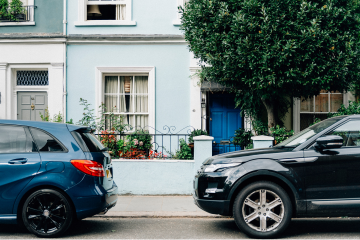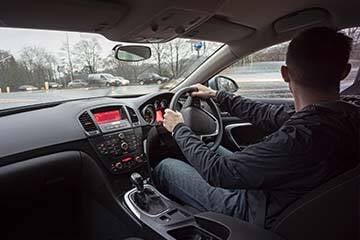What are the most common driving offences?
Our data on the top motoring convictions shows that some motoring offences are especially common:
Speeding - Speeding is by far the most common driving offence. The police tend to issue FPNs for most speeding offences but they might give you the option to attend a speed awareness course. If you complete the course, you don't get a fine or points on your licence.
You can choose to dispute an FPN by pleading not guilty but that means going to court. And if you’re found guilty, you could be fined far more than the usual £100 and get more than the standard 3 points added to your licence. If you do go to court, a judge could fine you up to £1,000 for speeding on a standard road or up to £2,000 for speeding on a motorway.
Driving through a red light - Police usually deal with the offence of failing to stop for a red light with an FPN – it’s a £100 fine and 3 points on licence if you plead guilty. As with FPNs for speeding offences, you can challenge it but that means going to court. If you’re found guilty, you risk paying a bigger fine and having more points added to your licence.
Using a mobile phone or other device - You can get an FPN with a £200 fine and 6 points on your driving licence for holding and using a device to send or receive data while driving. That includes using a phone, sat nav or tablet. If it goes to court, you could get a £1,000 fine and a driving ban. As the driver, you’re not meant to hold or use a device like your phone even if you’ve stopped at traffic lights or are queuing in traffic.
Illegal parking - You usually don’t get points on your licence for illegal parking – but you could get a £100 fine and 3 points on your licence if you get an FPN for leaving a vehicle in a dangerous position. This includes parking in the middle of the road. If you're caught parking on double yellow lines, expect a fine of £50-80.
Moving traffic offence - These can include things like driving down a one-way street or driving in a bus lane. If you’re caught driving down a one-way street, the police could hand you an FPN with a £100 fine and 3 points on your licence. Fines for driving in bus lanes can vary as they’re often levied by councils, but a fine of around £90 is typical.
Driving under the influence of alcohol - Drink-driving is one of the more serious driving offences. You could go to prison for 6 months, and get an unlimited fine with a minimum 12-month driving ban. Finding car insurance with a drink-driving conviction can also be challenging.
FAQs
What are driving offences?
You’ve committed a driving offence if you break the law while driving. There are a wide range of driving offences, from speeding to driving without an MOT, but broadly they can fall in to one of two categories, dangerous driving and careless or inconsiderate driving.
How is careless driving different from dangerous driving?
Dangerous driving is the more serious of the 2 offences and is described by the police as 'driving that falls far below the minimum expected of a competent and careful driver'. Examples include:
- Drink-driving
- Aggressive driving
- Deliberately ignoring road signs and traffic lights
- Any intentional lawbreaking while driving
Careless driving is more for lapses of judgement, including:
- Tailgating
- Slow driving
- Accidentally driving through a red light
What’s a penalty point?
Penalty points can be added to your licence if you’re convicted of a driving offence or if you admit to a driving offence through an FPN. Penalty points stay on your driving record for 4 to 11 years, depending on the motoring offence.
Many driving offences land you with 3 penalty points but some can add as many as 11 points to your licence depending on the severity of your offence. You get a driving ban if you build up more than 12 penalty points within 3 years.
What’s the difference between an FPN and PCN?
An FPN is backed by the threat of criminal prosecution, so if you don’t pay the penalty and accept the penalty points that come with it, you’ll have to plead your case in a magistrates court.
A PCN is a civil matter, mainly issued by councils for parking violations, so it doesn't involve the criminal courts.






